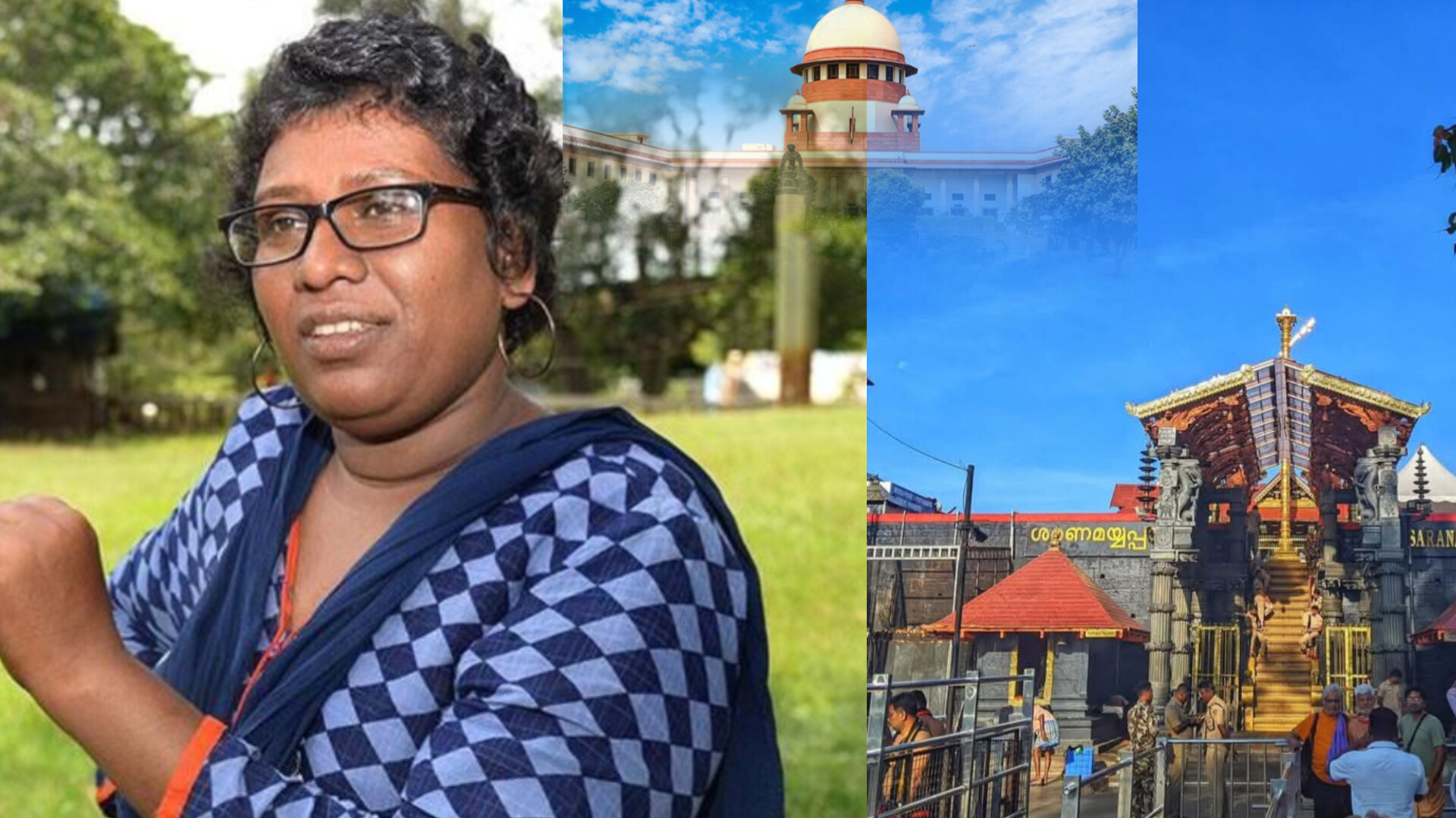Global Ayyappa Sangamam: Bindhu Ammini who entered Sabarimala says she will attend

Activist and academic Bindhu Ammini on Saturday shared a news card about the upcoming Global Ayyappa Sangamam in Kerala on her official social media page, captioned in Malayalam: “I too, as an Ayyappa devotee, will attend. Will you?”
Ammini, one of the first two women to enter the Sabarimala shrine after the Supreme Court’s landmark 2018 verdict allowing women of menstruating age to worship there, added weight to the post. The message left many questioning whether she genuinely plans to attend or was making a symbolic statement.
Her post quickly drew a flurry of responses, with several users mocking or criticising her. Ammini has faced repeated attacks in the past, reportedly linked to her temple visits.
Government Prepares for First Global Ayyappa Sangamam
The post comes shortly after the Kerala government and Travancore Devaswom Board (TDB) announced preparations for the inaugural Global Ayyappa Sangamam, scheduled for the third week of September at Pampa. The event, marking TDB’s 75th anniversary, seeks to promote Sabarimala as a global pilgrimage destination.
Around 3,000 delegates are expected to participate, offering prayers at the temple before engaging in discussions on improving pilgrim facilities. The conclave will also serve as a platform for experience-sharing and policy suggestions. A reception committee will be chaired by the Chief Minister, with ministers, officials, and community leaders as members. Preparations are already underway, following a high-level review meeting attended by ministers, MLAs, and senior officials.
A History of Dispute
The Sabarimala entry issue remains deeply contentious. For centuries, women aged 10 to 50 were barred from entering the shrine. The Supreme Court’s 2018 ruling, which deemed the restriction unconstitutional, triggered widespread protests from devotees who considered it a violation of tradition.
Despite resistance and occasional violence, the Kerala government implemented the verdict, enabling women’s entry. In 2019, the court referred the matter to a larger bench for review, but until a final judgment is delivered, the 2018 ruling stands.
